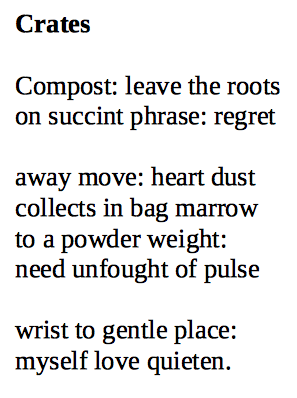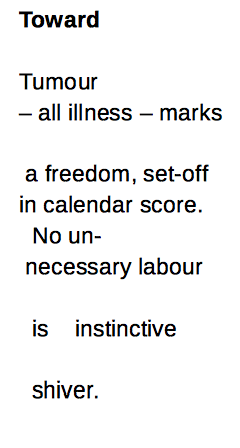I was looking at / thinking about Prynne’s recent poetry chapbooks again. Especially, how they overlap with early collections like ‘Brass’. Perhaps the former is more concerned with “kitsch” and closure (broadly thought to mean expressing – even saying – nothing about the world). These more recent poems seem to find a footing based more – but similarly – in language as self sufficient. I’m not at all sure that makes sense, but for me the circular collapse of meaning in these recent poems are more sentential, less at the level of the poem as organic whole. First sentence from Brass, then to the first comma in the chapbook Passing Grass Parnassus
Gratefully they evade the halflight
rising for me, on the frost abyss.
So be it bell bee lift medick black reliquary
fumitory cloven zigzag agree proud bee scout
provoked teasel,
I cannot tell you much about the sentence structure here, but it is certainly more unusual, and — here is the point I’m making — in a pressingly similar way to the play of structure (tonal or otherwise) in the prior poem as a whole. I tried rearranging some (I hope radical) improvisations of my own, based on grammar, and got
Ignite
Hush for a slept capital Eos eyes crust with semen blink at night beautiful her image: tired hands supplication for instants reverse perfect as DIY toward Revel. Turps fresh for scour with quick hope to wash closed handles door of soap.
A new technique for me, anyway. I think in effect I’m rearranging the words for tonal consistency (what I know of it) and, hopefully, it works out as something relevant to undermine my language manifesto (grotesque meaning or otherwise).

